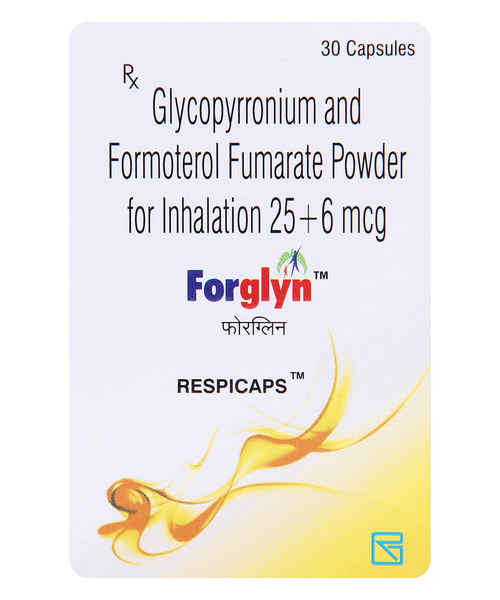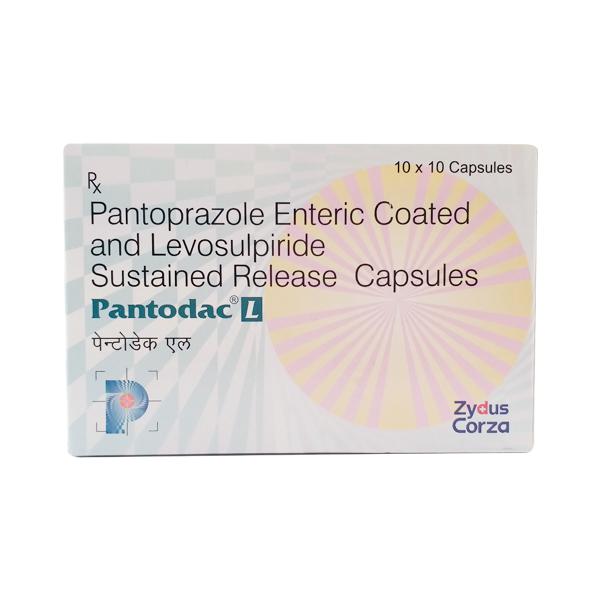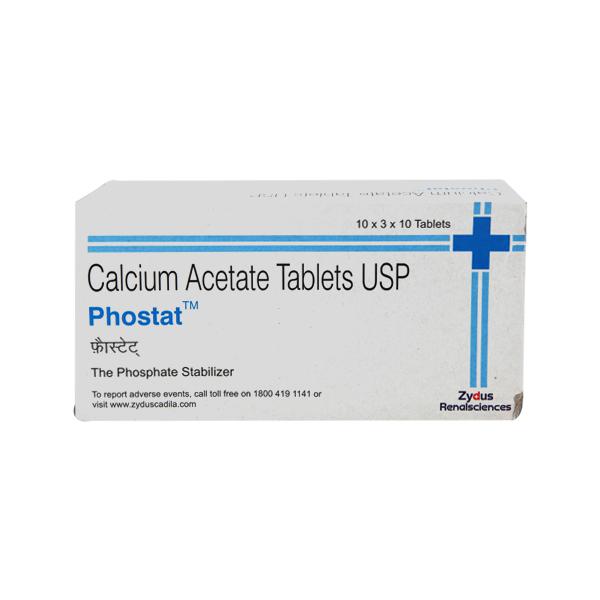lans LANSOPRAZOLE
Introduction to Lans
Lans, commonly known as Lansoprazole, is a medication used to treat various stomach and esophagus issues. It helps relieve symptoms such as heartburn, difficulty swallowing, and persistent cough. By reducing the amount of acid your stomach makes, it can also prevent ulcers and may help prevent cancer of the esophagus.
Composition of Lans
Lans contains the active ingredient Lansoprazole, which is part of a group of drugs known as proton pump inhibitors (PPIs). These work by blocking an enzyme in the stomach that produces acid, thereby reducing stomach acid levels.
Uses of Lans
- Treats heartburn and acid reflux
- Heals and prevents stomach and intestinal ulcers
- Manages gastroesophageal reflux disease (GERD)
- Prevents damage to the esophagus from stomach acid
Side Effects of Lans
Common Side Effects:
- Diarrhea
- Stomach pain
- Nausea
- Constipation
Serious Side Effects:
- Shaking or seizures
- Dizziness or muscle weakness
- Irregular heartbeat
- Severe skin reactions
Precautions of Lans
Before taking Lans, inform your healthcare provider if you have any allergies, liver disease, or low magnesium levels. Long-term use may lead to vitamin B12 deficiency and increase the risk of stomach growths. It may interact with other medications like antiretroviral drugs, warfarin, and methotrexate. If you are pregnant, planning to become pregnant, or breastfeeding, consult your healthcare provider before using Lans.
How to Take Lans
- Take Lans before meals.
- Swallow the capsules whole; do not break or chew them.
- The usual starting dose is 60 mg once daily.
- Your doctor may adjust the dose up to 90 mg twice daily.
Conclusion of Lans
Lans is an effective medication for managing stomach and esophagus conditions by reducing stomach acid production. While it offers relief from symptoms like heartburn and prevents ulcers, it is important to be aware of potential side effects and interactions with other medications. Always consult with your healthcare provider to ensure it is safe for your specific health needs.


Can I take Lans with other prescription drugs?
Lans can interact with certain medications, such as warfarin, which is a blood thinner, and methotrexate, which is used for cancer and autoimmune diseases. These interactions can increase the risk of adverse effects or reduce the effectiveness of Lans. Always inform your doctor about all medications you take to avoid potential interactions and ensure safe treatment.

Can Lans be taken safely while breastfeeding?
Lans is considered safe while breastfeeding, as it is not known to be excreted in significant amounts into breast milk. No adverse effects on breastfed infants have been reported. However, it's always best to consult your doctor before taking any medication while breastfeeding. Your doctor can provide personalized advice based on your health and your baby's needs.

Can Lans be taken safely while pregnant?
Lans is generally considered safe during pregnancy, but it's important to consult your doctor. Limited evidence is available on its absolute safety. Some studies suggest it doesn't increase the risk of birth defects. However, your doctor will weigh the benefits and risks based on your specific condition. Always follow your doctor's advice for managing your health during pregnancy.

Does Lans affect appetite?
Lans doesn't typically affect appetite. Most people taking this medication don't notice changes in how hungry they feel. If you experience unexpected changes in your appetite after starting Lans, talk with your doctor. They can help determine if these changes are related to the medication or another cause and suggest appropriate solutions.

Does Lans affect mood?
Lans doesn't typically cause mood changes, anxiety, or agitation. Most people take this medication without experiencing mental health effects. If you notice changes in your mood or mental well-being after starting Lans, talk with your doctor. These symptoms might be related to another cause, and your doctor can help determine the best course of action.

Does Lans affect sleep?
Lans doesn't typically cause sleep problems like insomnia or hypersomnia, which is excessive sleepiness. Most people take this medication without experiencing changes in their sleep patterns. If you notice changes in how well you sleep after starting Lans, talk with your doctor. Sleep problems might be related to another cause, and your doctor can help determine the best course of action.

Does Lans cause headaches?
Headaches are an occasional side effect of Lans. Most people take this medication without experiencing headaches. If you do get mild headaches, staying well-hydrated and resting may help. You can also take over-the-counter pain relievers after checking with your doctor. For severe or persistent headaches, talk with your healthcare provider to determine if they might be related to Lans or another cause.

Does Lans cause stomach upset?
Lans can occasionally cause stomach upset, including nausea, diarrhea, or abdominal pain. These side effects are usually mild. Taking the medication with food might help reduce discomfort. Most people take Lans without experiencing stomach upset. If you develop severe or persistent symptoms, talk with your doctor. They can help determine if these symptoms are related to Lans or another cause.

Does Lans cause weight gain?
Lans doesn't typically affect body weight. Most people take this medication without noticing changes in their weight. If you experience unexpected weight changes while taking Lans, talk with your doctor. They can help determine if these changes are related to the medication or another cause and suggest appropriate solutions.

Does Lans have adverse effects?
Adverse effects are unwanted reactions to a medication. Common adverse effects of Lans include headache, nausea, diarrhea, and abdominal pain. These effects are usually mild. Serious adverse effects, though rare, include severe allergic reactions, kidney problems, and low magnesium levels. If you notice any new or worsening symptoms, contact your doctor. They can help determine if these symptoms are related to Lans and suggest appropriate actions.

Does Lans have any safety warnings?
Yes, Lans has safety warnings. Long-term use may increase the risk of bone fractures, kidney problems, and vitamin B12 deficiency. It can also cause low magnesium levels, leading to muscle spasms or irregular heartbeat. If you experience symptoms like severe diarrhea, rash, or signs of an allergic reaction, seek medical help immediately. Always follow your doctor's advice and report any unusual symptoms.

Does Lans interfere with sexual function?
Lans doesn't typically cause sexual side effects like erectile dysfunction or loss of libido. Most people take this medication without noticing changes in their sexual function. However, if you experience any persistent discomfort or changes in your sexual function while taking Lans, talk with your doctor. Your doctor can help determine if your symptoms are related to the medication and recommend appropriate treatment to address any issues.

Does Lans limit driving?
Lans doesn't usually impair driving ability. However, if you experience side effects like dizziness or drowsiness, avoid driving until you know how the medication affects you. Pay attention to how your body responds when you first start taking Lans. If you have concerns about driving while on this medication, talk with your doctor for personalized advice.

Does Lans make it hard to think or concentrate?
Lans doesn't typically cause cognitive side effects like difficulty concentrating or thinking. Most people take this medication without experiencing changes in mental focus. If you notice problems with your thinking after starting Lans, talk with your doctor. These symptoms might be related to another cause, and your doctor can help determine the best course of action.

Does Lans make people tired or drowsy?
Lans doesn't typically cause tiredness or drowsiness. Most people take this medication without feeling unusually tired. If you notice you're feeling very sleepy or fatigued while taking Lans, talk with your doctor. Your tiredness might be caused by another medication or health condition. Your doctor can help determine the cause and recommend appropriate adjustments.

For how long do I take Lans?
Lans is often used for short-term treatment of conditions like GERD or stomach ulcers, typically for 4 to 8 weeks. For chronic conditions, your doctor may recommend longer use. The duration depends on your condition and response to treatment. Always follow your doctor's instructions and discuss any concerns about the length of your treatment.

How does Lans work?
Lans works by blocking the proton pump in the stomach lining, which reduces acid production. Think of it like turning down the volume on a radio. By lowering stomach acid, Lans helps heal the esophagus and stomach lining, relieving symptoms like heartburn. This makes it effective for treating conditions like GERD and stomach ulcers.

How do I dispose of Lans?
To dispose of Lans, take it to a drug take-back program or collection site at a pharmacy or hospital. They will dispose of it properly to prevent harm to people or the environment. If you can't find a take-back program, mix the medication with something undesirable like used coffee grounds, seal it in a plastic bag, and throw it away in the trash.

How do I know if Lans is working?
You'll know Lans is working when your symptoms, like heartburn or acid reflux, improve. Relief from these symptoms usually indicates the medication is effectively reducing stomach acid. Your doctor may monitor your progress through symptom check-ins or endoscopy, which is a procedure to view your esophagus and stomach. Regular follow-ups with your doctor help ensure the medication is working properly for your condition.

How do I take Lans?
Take Lans as directed by your doctor, usually once daily before a meal. Swallow the capsule whole; do not crush or chew it. If you miss a dose, take it as soon as you remember unless it's near the time for your next dose. In that case, skip the missed dose. Do not double up on doses. Avoid alcohol while taking Lans, as it can increase stomach acid and worsen your condition.

How long does it take for Lans to start working?
Lans starts working within 1 to 3 hours after taking it, but it may take several days to feel the full effect. For conditions like GERD, symptom relief can occur within a few days, but complete healing may take 4 to 8 weeks. Individual factors like age and overall health can affect how quickly you notice improvements. Follow your doctor's instructions for the best results.

How should I store Lans?
Store Lans at room temperature, away from moisture and light. Keep it in a tightly closed container. Avoid storing it in humid places like bathrooms, as moisture can affect the medication's effectiveness. Always keep Lans out of children's reach to prevent accidental ingestion. Check the expiration date regularly and dispose of any unused or expired medication properly.

Is it safe to drink alcohol while taking Lans?
It's best to avoid alcohol while taking Lans. Alcohol can increase stomach acid, which may worsen your condition and reduce the effectiveness of the medication. Drinking alcohol can also increase the risk of side effects like stomach upset. If you choose to drink, do so in moderation and consult your doctor for personalized advice based on your health situation.

Is it safe to drink coffee or tea while taking Lans?
You can drink coffee and tea while taking Lans, but be mindful of caffeine intake. Caffeine can increase stomach acid, which might counteract the medication's effects. Drinking too much caffeine may also cause stomach upset. Enjoy caffeinated drinks in moderation and monitor how your body responds. If you notice any discomfort, talk with your doctor for personalized advice.

Is it safe to exercise while taking Lans?
Yes, it's safe to exercise while taking Lans. This medication doesn't typically limit exercise capacity. However, if you experience symptoms like dizziness or stomach upset during physical activity, take a break and rest. Stay hydrated and listen to your body. If you have concerns about exercising while on Lans, consult your doctor for personalized advice.

Is it safe to stop Lans?
It's important to talk with your doctor before stopping Lans. Stopping suddenly can cause your symptoms to return or worsen. Lans is often used for short-term relief of symptoms like heartburn or long-term management of conditions like GERD. Your doctor may suggest gradually reducing your dose or switching to another medication to manage your condition safely.

Is Lans addictive?
Lans is not addictive or habit-forming. It doesn't cause dependency or withdrawal symptoms when you stop taking it. Lans works by reducing stomach acid production and doesn't affect brain chemistry in ways that could lead to addiction. You won't experience cravings for this medication or feel compelled to take more than prescribed. If you have concerns about medication dependence, Lans doesn't carry this risk.

Is Lans effective?
Lans is effective for treating conditions like GERD, which is gastroesophageal reflux disease, and stomach ulcers. It works by reducing stomach acid production, which helps heal the esophagus and stomach lining. Clinical studies show Lans effectively relieves symptoms like heartburn and prevents ulcer recurrence. Always follow your doctor's instructions to ensure the best results from your treatment.

Is Lans safe for the elderly?
Lans is generally safe for the elderly, but they may be more vulnerable to side effects like bone fractures and vitamin B12 deficiency. Older adults should use Lans under a doctor's supervision, who may adjust the dose based on their health needs. Regular monitoring helps ensure safe and effective treatment for elderly patients.

What are Lans possible harms and risks?
Taking Lans may cause mild side effects like diarrhea, stomach pain, nausea, or constipation. In some cases, it can cause serious side effects like shaking, seizures, dizziness, muscle weakness, or irregular heartbeat. Rarely, Lans can lead to severe skin reactions. Additionally, people who use Lans for a long time may have an increased risk of developing growths in their stomach called fundic gland polyps.

What are the most common side effects of Lans?
Side effects are unwanted reactions that can happen when taking a medication. Common side effects of Lans include headache, nausea, diarrhea, and abdominal pain. These effects are usually mild and temporary. If you notice new symptoms after starting Lans, they might be unrelated to the medication. Talk with your doctor before stopping any medication to ensure your treatment remains effective.

What disease or symptom is Lans used for?
Lans treats conditions like GERD, which is gastroesophageal reflux disease, and stomach ulcers by reducing stomach acid. It helps heal the esophagus and stomach lining, relieving symptoms like heartburn. Lans is also used to prevent ulcers in people taking NSAIDs, which are nonsteroidal anti-inflammatory drugs. It can be used alone or with other therapies to manage these conditions.

What is Lans?
Lans is a proton pump inhibitor, which is a type of medication that reduces stomach acid production. It treats conditions like GERD, which is gastroesophageal reflux disease, and stomach ulcers by healing the esophagus and stomach lining. Lans is also used to prevent ulcers in people taking NSAIDs, which are nonsteroidal anti-inflammatory drugs. It can be used alone or with other therapies.

What is the usual dose of Lans?
The usual starting dose of Lans for adults is 15 mg to 30 mg once daily before a meal. Your doctor may adjust your dose based on your condition and response to treatment. The maximum recommended dose is typically 30 mg per day. For children or the elderly, dose adjustments may be necessary. Always follow your doctor's specific dosing instructions for your health needs.

Who should avoid taking Lans?
Don't take Lans if you're allergic to it or its ingredients. Serious allergic reactions require immediate medical help. Lans shouldn't be used by people with severe liver disease without consulting a doctor. Caution is needed for those with osteoporosis, as long-term use may increase fracture risk. Always consult your doctor about any concerns or conditions before starting Lans.
Available in 2 variations

Lans OD 30mg Capsule
strip of 10 capsules

Lans 30mg Capsule
strip of 10 capsules











.svg)
